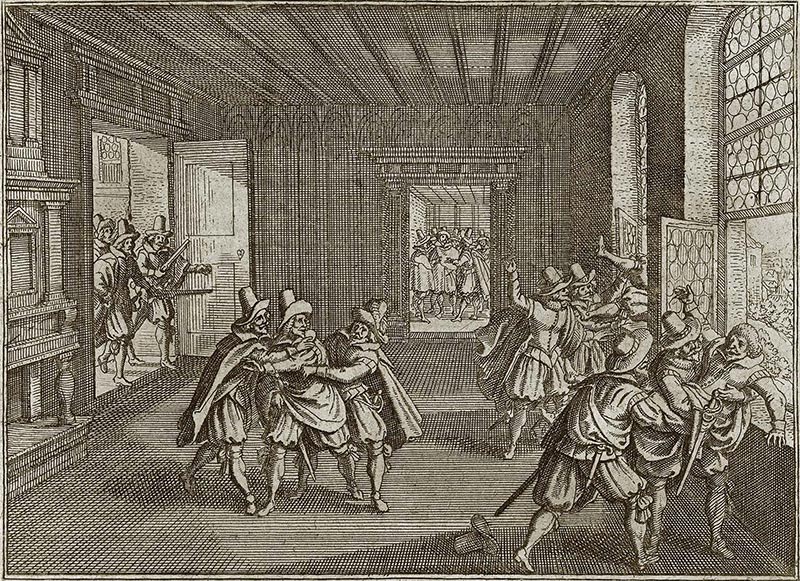
Don’t Defenestrate!
Looking through this famous window gave me a fresh perspective on an age-old problem—the human tendency to use violence to solve problems.
WALKING THROUGH THE ANCIENT castle in the Czech Republic’s majestic capital, Prague, my wife and I came to an infamous lead-glass window. It offers a beautiful view of the city, being located on the third floor of the citadel. It is some 20 meters (65 feet) above ground level, as three men learned the hard way in 1618.
Imperial regents Vilem Slavata and Jaroslav Borzita and their secretary Philip Fabricius represented the Catholic side in the religious contention with Protestants that was about to become the Thirty Years’ War—a war that would devastate Europe. The regents had gained the upper hand, and they were poised to take over the estates of their enemies. Protestant nobles decided upon a simple solution: They threw the Catholics out the window. They defenestrated them!
Surprisingly, the three men survived. Catholics attributed the escape to divine protection. Adversaries ascribed the men’s deliverance to the large pile of horse manure into which they fell. …
A natural reaction
The Second Defenestration of Prague in 1618, depicted in a woodcut by Matthäus Merian the Elder.
It was a natural human response—when threatened by an enemy, take no chances. Do unto others before they can do unto you!
This defenestration attitude, present in the world since Cain murdered Abel, is now reaching a new intensity around the world. The Bible indicates it will continue to escalate. War, terrorism, social strife—all come, in sum or in part, from a fearful and vengeful attitude of domination.
Natural human responses, however, are rarely right before God. Defenestration certainly is not: “The wrath of man does not produce the righteousness of God” (James 1:20).
A different reaction
Jesus preached a different approach: “You have heard that it was said, ‘You shall love your neighbor and hate your enemy.’ But I say to you, love your enemies, bless those who curse you, do good to those who hate you, and pray for those who spitefully use you and persecute you, that you may be sons of your Father in heaven; for He makes His sun rise on the evil and on the good, and sends rain on the just and on the unjust” (Matthew 5:43-45).
As our increasingly adversarial societies fragment, it will be challenging to resist desires for retribution over real or imagined aggressions. It will be tempting to give in to noxious emotions that darken our hearts. Jesus warned, “Because lawlessness will abound, the love of many will grow cold” (Matthew 24:12). The context indicates this verse refers to Christians who will not only stop loving their enemies, but even their spiritual brethren.
One antidote to the defenestration attitude is to take a long view of the salvation plan of the God of love. Our enemies will not always be our enemies. In the day our Creator opens their minds, they can become friends and brothers and sisters in the family of God. This is why God sends sunshine and rain on the unjust. He knows the potential He created in them; He sees not just what they are, but what they can become. God is “not willing that any should perish but that all should come to repentance” (2 Peter 3:9). One day, they will.
Rather than emulating the attitude that made that window in Prague infamous, we should, through the window of our minds, focus on future peace and brotherhood among all in God’s Kingdom on earth.
–Joel Meeker
@JoelMeeker



